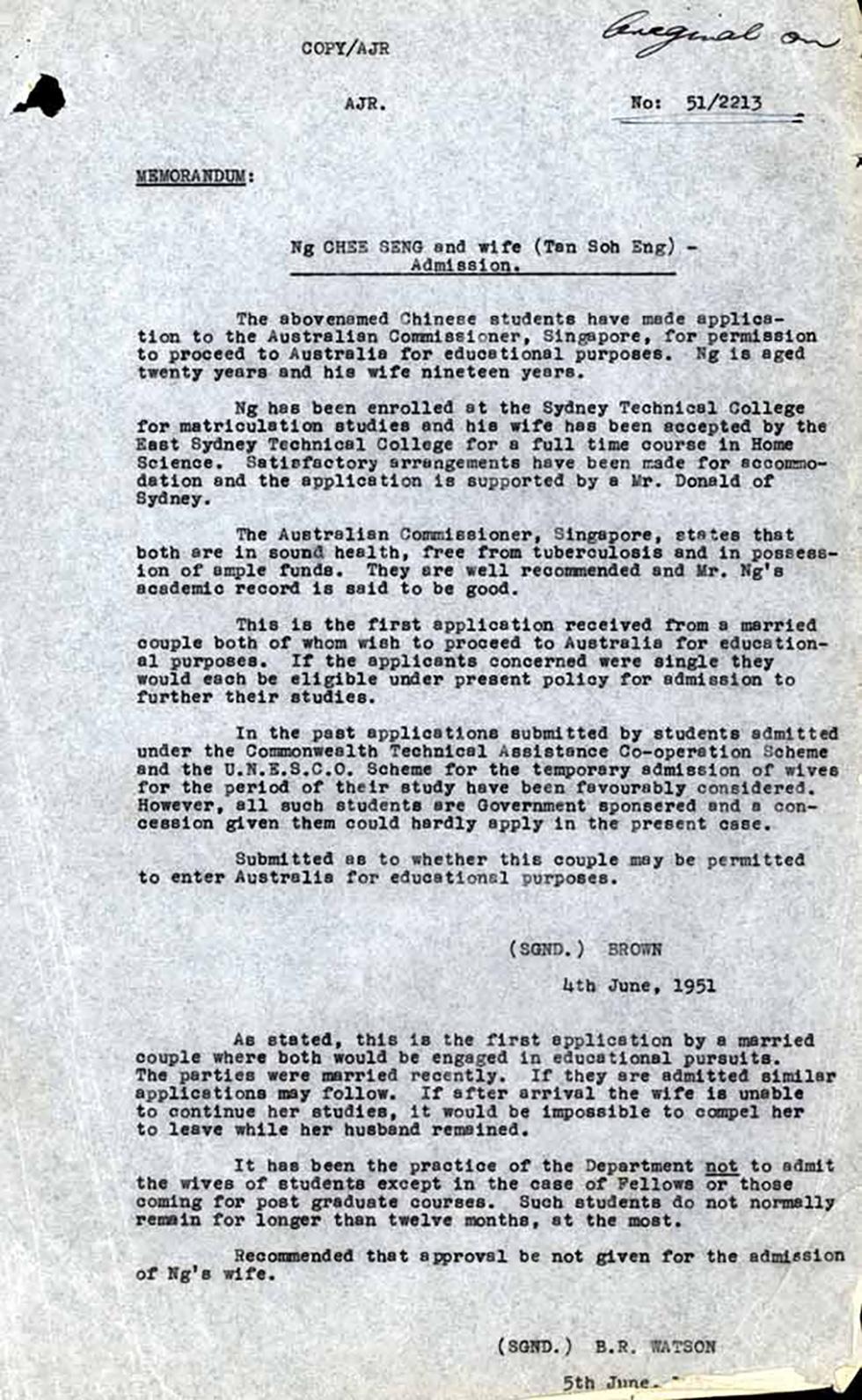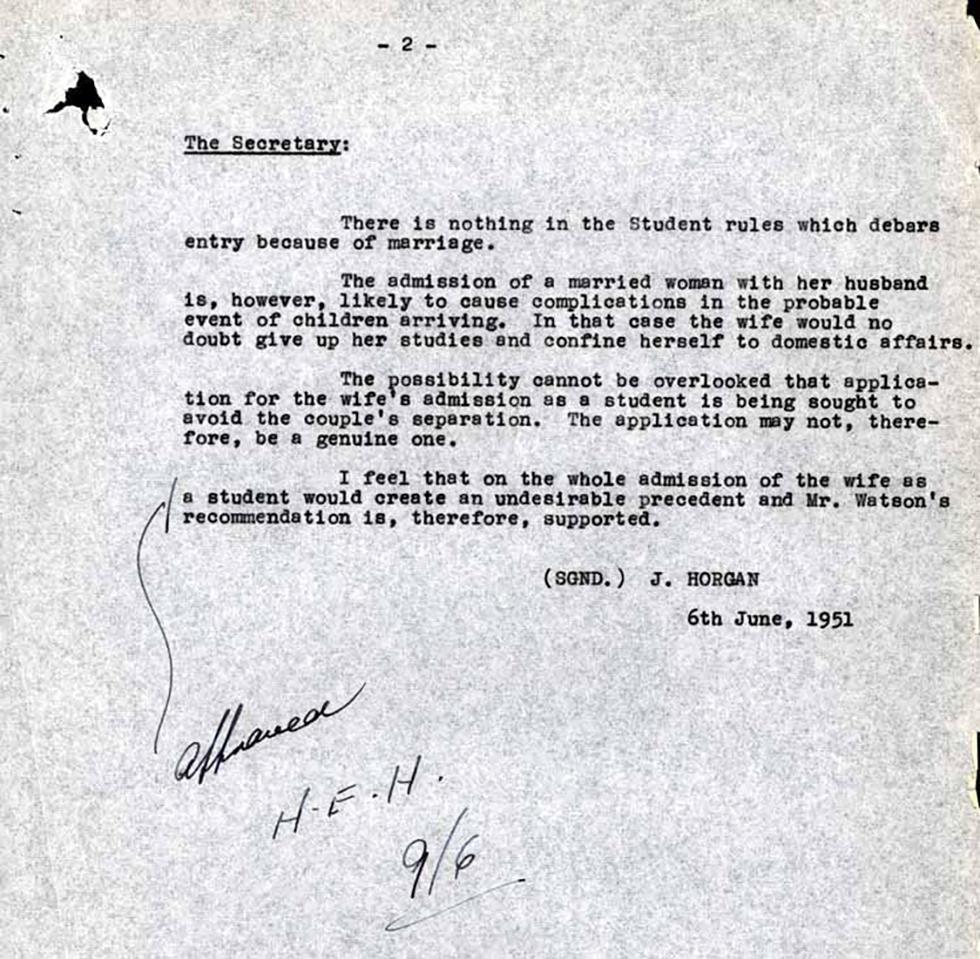
Memorandum - page 1

Memorandum - page 2
Aboriginal and Torres Strait Islander people should be aware that the National Archives' website and collection contain the names, images and voices of people who have died.
Some records include terms and views that are not appropriate today. They reflect the period in which they were created and are not the views of the National Archives.


Memorandum - page 1

Memorandum - page 2
[Page 1.]
[Handwritten in top right corner:] Original on
COPY/AJR
AJR.
NO: 51/2213 [underlined in black ink]
MEMORANDUM: [underlined]
[Underlined heading:] Ng CHEE SENG and wife (Ten Soh Eng) – Admission.
The abovenamed Chinese students have made application to the Australian Commissioner, Singapore, for permission to proceed to Australia for educational purposes. Ng is aged twenty years and his wife nineteen years.
Ng has been enrolled at the Sydney Technical College for matriculation studies and his wife has been accepted by the East Sydney Technical College for a full time course in Home Science. Satisfactory arrangements have been made for accommodation and the application is supported by a Mr. Donald of Sydney.
The Australian Commissioner, Singapore, states that both are in sound health, free from tuberculosis and in possession of ample funds. They are well recommended and Mr. Ng’s academic record is said to be good.
This is the first application received from a married couple both of whom wish to proceed to Australia for educational purposes. If the applicants concerned were single they would each be eligible under present policy for admission to further their studies.
In the past applications submitted by students admitted under the Commonwealth Technical Assistance Co-operation scheme and the U.N.E.S.C.O. Scheme for the temporary admission of wives for the period of their study have been favourably considered. However, all such students are Government sponsored and a concession given them could hardly apply in the present case.
Submitted as to whether this couple may be permitted to enter Australia for educational purposes.
(SGND.) [Signed] BROWN
4th June, 1951
As stated, this is the first application by a married couple where both would be engaged in educational pursuits. The parties were married recently. If they are admitted similar applications may follow. If after arrival the wife is unable to continue her studies, it would be impossible to compel her to leave while her husband remained.
It has been the practice of the Department not [underlined] to admit the wives of students except in the case of Fellows or those coming for post graduate courses. Such students do not normally remain for longer than twelve months, at the most.
Recommended that approval be not given for the admission of Ng's wife.
(SGND.) B.R. WATSON
5th June [year obscured by damaged page.]
[Page] -2-
The Secretary: [underlined]
There is nothing in the Student rules which debars entry because of marriage.
The admission of a married woman with her husband is, however, likely to cause complications in the probable event of children arriving. In that case the wife would no doubt give up her studies and confine herself to domestic affairs.
The possibility cannot be overlooked that application for the wife’s admission as a student is sought to avoid the couple’s separation. The application may not, therefore, be a genuine one.
I feel that on the whole admission of the wife as a student would create an undesirable precedent and Mr. Watson’s recommendation is, therefore, supported.
(SGND.) J. HOGAN
6th June, 1951
[Handwritten annotation, connected to the final paragraph above by a line:]
Approved
H.E.H.
9/6
Learn how to interpret primary sources, use our collection and more.
